The Gilgamesh Epic is an epic poem from ancient Mesopotamia that is often regarded as the earliest surviving great work of literature. The literary history of Gilgamesh begins with five Sumerian poems about 'Bilgamesh' (Sumerian for 'Gilgamesh'), king of Uruk, dating from the Third Dynasty of Ur (circa 2100 BC). These independent stories were later used as source material for a combined epic. The first surviving version of this combined epic, known as the "Old Babylonian" version, dates to the 18th century BC and is titled after its incipit, Shūtur eli sharrī ("Surpassing All Other Kings"). Only a few tablets of it have survived. The later "Standard" version dates from the 13th to the 10th centuries BC and bears the incipit Sha naqba īmuru ("He who Saw the Deep", in modern terms: "He who Sees the Unknown"). Approximately two thirds of this longer, twelve-tablet version have been recovered. Some of the best copies were discovered in the library ruins of the 7th-century BC Assyrian king Ashurbanipal. The first half of the story discusses Gilgamesh, king of Uruk, and Enkidu, a wild man created by the gods to stop Gilgamesh from oppressing the people of Uruk. After an initial fight, Gilgamesh and Enkidu become close friends. Together, they journey to the Cedar Mountain and defeat Humbaba, its monstrous guardian. Later they kill the Bull of Heaven, which the goddess Ishtar sends to punish Gilgamesh for spurning her advances. As a punishment for these actions, the gods sentence Enkidu to death. In the second half of the epic, distress about Enkidu's death causes Gilgamesh to undertake a long and perilous journey to discover the secret of eternal life. He eventually learns that "Life, which you look for, you will never find. For when the gods created man, they let death be his share, and life withheld in their own hands".

El poder de las afirmaciones
Anonymous
audiobook
The Ladies' Work-Table Book : Containing Clear and Practical Instructions in Plain and Fancy Needlework, Embroidery, Knitting, Netting and Crochet
Anonymous
book
Mahanirvana Tantra : Tantra of the Great Liberation
Anonymous
book
Manual de seducción (Seduction Manual)
Anonymous
audiobook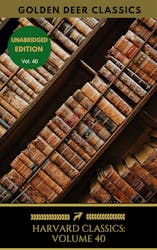
Harvard Classics Volume 40 : English Poetry 1: Chaucer To Gray
Geoffrey Chaucer, Golden Deer Classics, Anonymous, Thomas Wyatt, Henry Howard, George Gascoigne, Edward Dyer, John Lyly, Thomas Lodge, George Peele, Robert Southwell, Samuel Daniel, Michael Drayton, Henry Constable, Edmund Spenser, William Habington, Christopher Marlowe, Richard Rowlands, Thomas Nashe, William Shakespeare, Robert Greene, Richard Barnfield, Thomas Campion, Robert Devereux, Henry Wotton, Edward de Vere, Ben Jonson, John Donne, Joshua Sylvester, William Alexander, Richard Corbet, Thomas Heywood, Thomas Dekker, Francis Beaumont, John Fletcher, John Webster, William Drummond, George Wither, William Browne, Robert Herrick, Francis Quarles, George Herbert, Henry Vaughan, Francis Bacon, James Shirley, Thomas Carew, John Suckling, William D'Avenant, Richard Lovelace, Edmund Waller, William Cartwright, James Graham, Richard Crashaw, Thomas Jordan, Abraham Cowley, Alexander Brome, Andrew Marvell, Earl of Rochester, Charles Sedley, John Dryden, Matthew Prior, Isaac Watts, Lady Grisel Baillie, Joseph Addison, Allan Ramsay, John Gay, Henry Carey, Alexander Pope, Ambrose Philips, Colley Cibber, James Thomson, Thomas Gray, George Bubb Dodington
book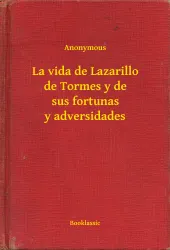
La vida de Lazarillo de Tormes y de sus fortunas y adversidades
Anonymous
book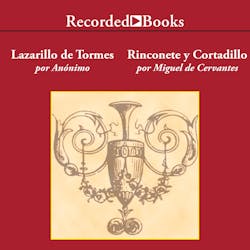
El Lazarillo de Tormes/ Rinconete y Cortadillo
Anonymous, Miguel De Cervantes Saavedra
audiobook
GMAT Official Guide 2025 - 2026 : Book + Online Question Bank
Anonymous
audiobook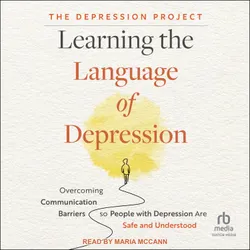
Learning the Language of Depression : Overcoming Communication Barriers so People with Depression Are Safe and Understood
Anonymous
audiobook
Pipsa Possu - Dinosaurusjuhlat
Anonymous
audiobook
The story of Flamenca : The first modern novel, arranged from the Provençal original of the Thirteenth Century by William Aspenwall Bradley
Anonymous
book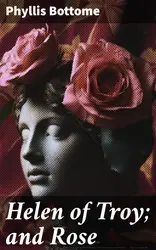
Wreck of the "London"
Anonymous
book
